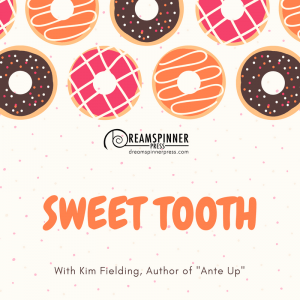I just finished reading Deerskin by Robin McKinley. It was intense and beautiful. I didn’t want to put it down, mostly because I didn’t want to leave Lissar where she was. I felt like I needed to see her through to the end. She’s an excellent character, and I found that I cared very much about her very quickly.
The writing feels kind of fairytale in style. It tends toward some truly impressive run-on sentences, but the language also had an interesting flow to it that I really liked once I got into it. Even though it’s a bit wordy, the descriptions of her surroundings, sensations, and internal experience are extremely vivid and gripping.
Princess Lissar is accompanied throughout her journey by her loyal fleethound, Ash. I loved how relatable her relationship with Ash felt. The canines in this fantasy world might be almost supernaturally beautiful and graceful and clever, but they’re also just dogs, with all the weird little behaviors and quirks that people love them for. The story centers a great deal on her bond with Ash and the way they care for and rescue each other.
The rest of this post warrants a trigger warning for discussion of sexual assault, so please be warned.
Deerskin deals with sexual trauma and Lissar’s struggle to survive and recover. I didn’t find that it in any way sensualized the abuse, which can be a big problem in some fiction. It does, however, go very deep into her senses, her emotions, and the resulting flashbacks and disassociation. I haven’t experienced PTSD, but it was in line with what I’ve been told it can be like. I was impressed by that, since I haven’t seen many realistic depictions of trauma in fantasy, but it might also be very painful for some people to read.
The story is based on Donkeyskin by Charles Perrault. I actually think that as a kid I had an illustrated book of the fairytale version, which is slightly terrifying to me in retrospect. Most fairytales were originally much darker than their modern kid-friendly versions, but this one is probably not as familiar to a general audience. Not so shocking that a story about a father trying to marry his own daughter didn’t catch on quite as easily as some of the others, where at least the creepiest parts were easier to pare off while leaving the stories intact. The original telling, of course, doesn’t focus on the terrible reality of incest so much as on the virtuousness of the princess in being willing to suffer ugliness and hard labor to escape her father’s immorality.
This story, on the other hand, is about Princess Lissar and no one else. It’s about her experiences, her rediscovery of herself, and her anchoring connection with the faithful dog who sticks by her through it all.
 Dead roses feel quite appropriate for such a disturbing fairytale.
Share this:
Dead roses feel quite appropriate for such a disturbing fairytale.
Share this:




